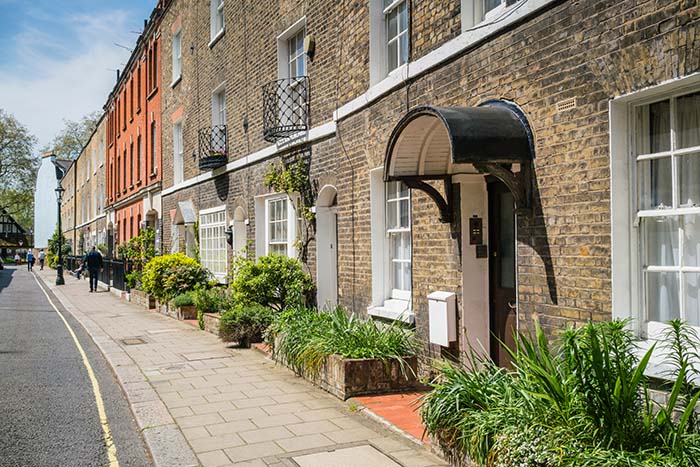Sash windows are a common sight on period properties around the UK. These windows are made up of 2 sliding panels (or sashes), that slide up and down. The panels are held in frames and are moved up and down using a pulley system.
How Did Sash Windows Begin?
We have seen evidence of sash windows dating as far back as the 17th century, although no one is quite sure exactly when and where they were first created.
The oldest living examples exist in England, dating as far back as 1670. Some people believe Robert Hooke, an architect, is the inventor of sash windows. It is thought that he came up with the sash window design when rebuilding the City of London after the Great Fire of 1666. Other evidence suggests that sash windows might be a Dutch invention. We might never be sure!
Why Are Sash Windows Such Different Sizes?
Walking around London you will see sash windows of all sizes. You might notice that the first and second floor have huge windows, whilst the top floor windows are less than half the size. This is because, in Georgian Times, it was custom to have the owners living in the bottom half of the house and the staff in the top half. The owners would benefit from huge windows that created a sense of space in the rooms, whilst the staff weren’t treated to this decadence.
If you look even closer you might notice many period properties in London have windows that have been bricked up. Between 1696 to 1851 there was a window tax levied on homeowners, the more windows a home had the richer the owner was believed to be, and so the more tax they were made to pay. To avoid this, many homeowners bricked in unnecessary windows.
Why Do Different Windows Have Different Pains Of Glass?
Sash windows have been popular in British homes for a large period of time. However, they have undergone many style and design changes as each era has gone by. If you are looking to renovate your sash windows, it is important to match the right style to the age of your property.
A sliding sash, with six smaller panes of glass per sash, held in place by thin glazing bars, is conventional for Georgian properties.
The Victorian-style sash window features a centre bar, with two larger panes of glass on either side.
In an Edwardian home we see six smaller panes in the top sash and two larger panes in the bottom sash.

Leave a Reply